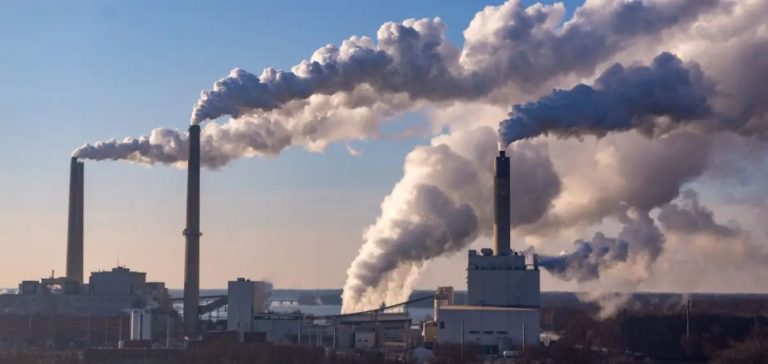Committed on paper to reducing their carbon footprint, major banks continue to finance highly greenhouse gas-emitting activities, according to a report published Tuesday by the Transition Pathway Initiative (TPI), a research center specializing in low-carbon investments.
Based at the prestigious London School of Economics, the TPI surveyed 26 transnational banking institutions. Among them, 22 are prepared to finance new coal-related activities, and 24 to the exploitation of new oil and gas fields. This investment direction poses significant challenges for the global energy transition.
Impact of Bank Financing on Climate
By facilitating the flow of capital to highly emitting sectors, banks contribute to the exacerbation of climate risks. Simon Dietz, research director at TPI, emphasizes that “while some progress has been made since our first assessments in 2022, banks are not acting quickly enough to meet global climate objectives.” He adds, “without stronger action, the banking sector exposes the global economy to increased regulatory, commercial, and physical risks related to climate change.”
The report examines a total of 38 banks, including ten regional American banks as well as French banks Crédit Agricole, Société Générale, and BNP Paribas. It reveals that most of these institutions do not contribute sufficiently to enable the world to meet the temperature goals of the Paris Agreement.
Emission Reduction Plans: Insufficient Effort
Only 19 % of the trajectories presented by banks for their various business sectors include plans to reduce their carbon footprint by 2035, in line with the requirements to limit warming to 2 °C above pre-industrial levels. This figure drops to 3 % when considering the stricter limit of 1.5 °C.
TPI’s analysis shows that European and Japanese banks have set more sectoral decarbonization goals than their North American counterparts. In contrast, the Chinese banks studied have not yet established sectoral decarbonization goals, which could hinder global emission reduction efforts.
Call for Stronger Banking Action
The report’s authors call for a more systematic integration of climate issues into banks’ operations. “Promising carbon neutrality has become commonplace, but these commitments remain limited in scope due to the exclusion of important business sectors,” they highlight. They estimate that only 22 % of banks’ revenues are covered by climate commitments, which is insufficient for a significant impact.
Economic and Regulatory Consequences
The lack of bank commitment in reducing financing towards polluting industries exposes these institutions to increased risks. On the regulatory front, banks could face sanctions or additional constraints aimed at limiting their contribution to greenhouse gas emissions. Additionally, on the commercial front, investors and clients could turn away from banks that do not meet expected environmental standards.
Conclusion on Banking Commitments
The TPI report highlights the urgent need for major banks to strengthen their commitments to reducing carbon emissions. Without concerted and ambitious action, the banking sector risks not only compromising global climate objectives but also exposing itself to significant financial and reputational risks.






















